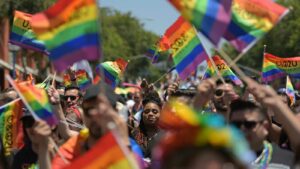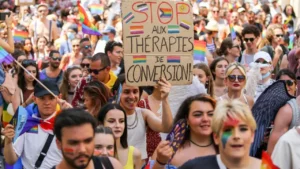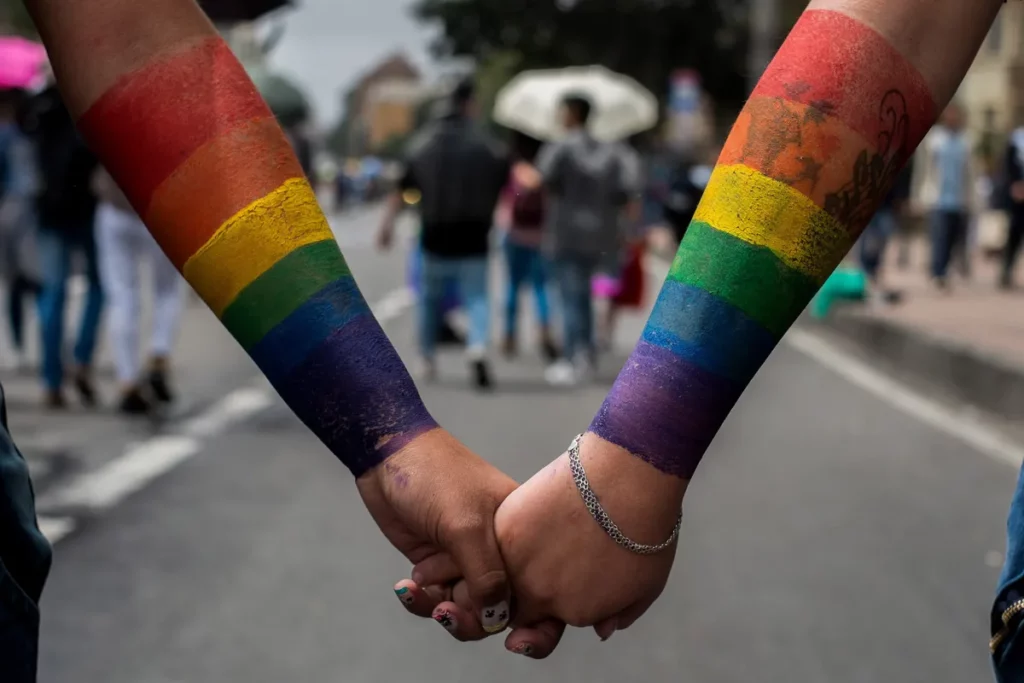In a world that’s constantly evolving, we’ve come to witness an increasing acknowledgment of diversity. Particularly in terms of sexual orientation and gender identity. This recognition, while a positive step towards inclusivity, also brings to light a multitude of ethical issues that the LGBTQ+ community faces. As societal attitudes shift, it is imperative to ensure the rights and well-being of all individuals, irrespective of who they choose to be. This blog post delves into the various ethical issues in the LGBTQ community and aims to inspire a collective endeavor to establish a more equitable and accepting society.
Contents
- 1 Top 10 Ethical Issues In LGBTQ Community
- 1.1 Access to Healthcare
- 1.2 Mental Health Stigmatization
- 1.3 Legal Discrimination
- 1.4 Lack of Recognition
- 1.5 Workplace Discrimination
- 1.6 Bullying and Harassment
- 1.7 Conversion Therapy
- 1.8 Discrimination in Housing
- 1.9 LGBTQ+ Rights in Religious Contexts
- 1.10 Lack of Adequate Legal Protection for LGBTQ+ Families
- 2 Strategies To Manage Ethical Issues In LGBTQ
- 3 Conclusion
Top 10 Ethical Issues In LGBTQ Community
 The journey to inclusivity and acceptance for the LGBTQ+ community is paved with numerous ethical obstacles, highlighting the ongoing disparity and struggle they encounter. Let’s delve into the top 10 ethical issues in LGBTQ that underscore the need for improved policies, attitudes, and practices.
The journey to inclusivity and acceptance for the LGBTQ+ community is paved with numerous ethical obstacles, highlighting the ongoing disparity and struggle they encounter. Let’s delve into the top 10 ethical issues in LGBTQ that underscore the need for improved policies, attitudes, and practices.
Access to Healthcare
The healthcare sector is a vital area where the LGBTQ+ community faces significant ethical issues. Despite advancements in medical knowledge and practice, many healthcare providers lack the proper training or understanding to address the specific health needs of LGBTQ+ individuals. This is particularly prevalent in the care of transgender individuals, where ignorance or bias can prevent access to hormone replacement therapy (HRT) and gender-affirming surgeries. Further, fear of discrimination or ill-treatment can deter LGBTQ+ individuals from seeking necessary medical care. And potentially exacerbating health disparities.
Mental Health Stigmatization
The prevalence of mental health issues within the LGBTQ+ community is disproportionately high compared to the general population. This heightened vulnerability can be attributed to a phenomenon known as “minority stress.” That encompasses the chronic stress faced by individuals belonging to stigmatized minority groups. Fear of rejection, discrimination, and violence can lead to increased rates of depression, anxiety, substance abuse, and suicidal ideation among LGBTQ+ individuals. Despite this, mental health services often fail to provide inclusion, perpetuating a cycle of stigma and neglect.
Legal Discrimination
Despite strides in some areas of the world towards more equitable laws, legal discrimination remains a significant barrier for the LGBTQ+ community. Many countries still have laws that criminalize homosexuality or transgender identities, violating basic human rights. Even in nations where LGBTQ+ rights are legally recognized. Still, law enforcement agencies may not adequately protect these rights. Additionally, discriminatory practices continue to persist, including in areas like marriage, adoption, employment, and housing. These inequities underline the need for comprehensive legal reform. That is to ensure equal rights and protections for all, regardless of sexual orientation or gender identity.
Lack of Recognition
Societal understanding and acceptance of non-binary, genderqueer, and intersex individuals lag behind that of more ‘recognized’ identities, like gay, lesbian, or bisexual. This lack of recognition contributes to a host of ethical issues. For example, many systems, from governmental to healthcare, are often rigidly gender-binary, failing to accommodate those who don’t fit neatly into categories of ‘male’ or ‘female.’ This can result in exclusion, misgendering, and improper care. Intersex individuals, in particular, face ethical issues regarding non-consensual surgeries in infancy or childhood intended to ‘normalize’ their bodies, often leading to physical and psychological harm.
Workplace Discrimination
LGBTQ+ individuals often confront considerable discrimination in the workplace. This can manifest in several ways, such as biased hiring practices, unequal pay, lack of promotion opportunities, and even job loss based on sexual orientation or gender identity. Additionally, many LGBTQ+ individuals experience a hostile work environment, including harassment, bullying, and microaggressions, which can negatively impact their mental health and overall job satisfaction. Despite legal protections in some regions, enforcing these rights can be a challenge, and workplace discrimination remains a persistent issue.
Bullying and Harassment
LGBTQ+ youth often face considerable bullying and harassment in schools. That can severely impact their academic performance and mental health. The lack of LGBTQ+ inclusive policies and guidelines in many educational institutions contributes to this issue. Also, educators often lack the training to intervene effectively in situations of bullying or to provide necessary support to LGBTQ+ students. In addition to direct bullying, schools often fail to provide comprehensive, LGBTQ+ inclusive sex education. This absence of accurate information can foster an environment of ignorance and prejudice. Ultimately, leading to further marginalization of LGBTQ+ students.
Conversion Therapy
 Despite being widely discredited and condemned by major medical and psychiatric organizations, conversion therapy is still practiced in some areas. These treatments, often conducted by unlicensed practitioners or religious groups, are aimed at changing an individual’s sexual orientation or gender identity. And leading to severe psychological harm. LGBTQ+ individuals subjected to these practices often experience increased rates of depression, anxiety, and suicide. The continued existence of conversion therapies underscores the significant ethical challenges that the LGBTQ+ community continues to face.
Despite being widely discredited and condemned by major medical and psychiatric organizations, conversion therapy is still practiced in some areas. These treatments, often conducted by unlicensed practitioners or religious groups, are aimed at changing an individual’s sexual orientation or gender identity. And leading to severe psychological harm. LGBTQ+ individuals subjected to these practices often experience increased rates of depression, anxiety, and suicide. The continued existence of conversion therapies underscores the significant ethical challenges that the LGBTQ+ community continues to face.
Discrimination in Housing
Housing discrimination is another pressing issue for the LGBTQ+ community. Whether it’s being denied rental applications, evictions, or discriminatory treatment by housing staff, these experiences lead to housing instability, economic hardship, and psychological distress. Transgender individuals and LGBTQ+ people of color are particularly at risk. In some regions, laws protecting against housing discrimination based on sexual orientation and gender identity are nonexistent or inadequately enforced.
LGBTQ+ Rights in Religious Contexts
Religion plays a significant role in many societies, and it can pose substantial ethical challenges for the LGBTQ+ community. Many religious institutions do not fully accept or understand LGBTQ+ identities, which can result in exclusion, discrimination, and even attempts at conversion therapy. The tension between one’s faith and one’s sexual orientation or gender identity can also lead to moral distress and conflict. It’s essential to promote open, informed discussions about sexuality and gender identity within religious communities to foster greater understanding and acceptance.
Lack of Adequate Legal Protection for LGBTQ+ Families
LGBTQ+ individuals and families often face legal obstacles when it comes to family rights. These issues can involve the right to marry, adopt or foster children, access fertility treatments, or secure parental rights. For example, some regions don’t recognize same-sex marriages or don’t provide adequate parental rights protections for non-biological parents in same-sex couples. These legal gaps leave LGBTQ+ families vulnerable and can have serious consequences for their well-being and stability. It emphasizes the need for laws that fully recognize and protect diverse family structures.
Addressing these ethical issues in LGBTQ is not just a matter of advocacy. In fact, it’s a necessary step towards fostering a society that truly celebrates diversity. By confronting these challenges head-on, we can contribute to creating a world where every individual, irrespective of their sexual orientation or gender identity, can live freely and without fear.
Strategies To Manage Ethical Issues In LGBTQ
 Addressing ethical issues in the LGBTQ community requires comprehensive, multi-dimensional strategies. Here are some of the potential approaches:
Addressing ethical issues in the LGBTQ community requires comprehensive, multi-dimensional strategies. Here are some of the potential approaches:
1. Education and Training
Building awareness and understanding of the LGBTQ+ community is a key strategy. This includes education for the public. As well as specific training for professionals in sectors like healthcare, education, law enforcement, and social services. Such training should address LGBTQ+-specific needs, terminology, biases, and ways to create an inclusive environment.
2. Policy Changes and Legal Reforms
Legal and policy reforms are essential to protect the rights of LGBTQ+ individuals. These may involve changing discriminatory laws and introducing protections against discrimination. Or ensuring equal access to services like healthcare, housing, and education. Laws should also be enforced and monitored to ensure they are effectively protecting the rights of LGBTQ+ individuals.
3. Advocacy and Activism
Continued advocacy and activism play an essential role in changing societal attitudes, influencing policy, and providing support for the LGBTQ+ community. This can involve everything from public protests, lobbying for policy changes, and raising awareness through media, to providing direct support and resources for LGBTQ+ individuals.
4. Support and Counseling Services
LGBTQ+ individuals often face unique stressors and mental health challenges. Providing accessible, inclusive, and culturally competent mental health services is critical. These services should include counseling and support for dealing with issues like discrimination, stigma, identity exploration, and coming out.
5. Inclusive Spaces
Creating safe and inclusive environments where LGBTQ+ individuals can express themselves freely and without fear is essential. This includes physical spaces like LGBTQ+ centers and inclusive schools and workplaces. Also, virtual spaces where individuals can connect, share experiences, and access resources.
6. Research
Conducting and supporting research into the experiences, needs, and challenges of the LGBTQ+ community can help to identify areas where change is needed. Also, inform policy and practice, and dispel harmful myths and stereotypes.
7. Allyship
Encouraging allyship within non-LGBTQ+ communities can be a powerful tool for change. Allies can help to challenge discriminatory behavior, support LGBTQ+ individuals, and advocate for equality and inclusivity.
By employing these strategies, we can move towards a more inclusive, accepting society where everyone, regardless of sexual orientation or gender identity, is valued and respected.
Conclusion
Navigating the landscape of ethical issues in the LGBTQ community is a complex, multifaceted journey, one that requires consistent commitment, understanding, and proactive change at all societal levels. By actively addressing these ethical issues, we’re not only advocating for a group that has historically been marginalized. In fact, we’re building a foundation for a world that acknowledges and respects the inherent dignity of all its citizens.
Such a world isn’t built overnight, nor is it the task of the few. It requires the collective efforts of governments, organizations, and individuals alike. Each step we take, every law reformed, every person educated, every act of love and acceptance, brings us closer to that ideal.
Life may sometimes be challenging for people from LGBTQ community, but Online LGBTQ Counseling can help. Get experienced LGBTQ therapists at PrideMantra: Book a trial LGBTQ therapy session


